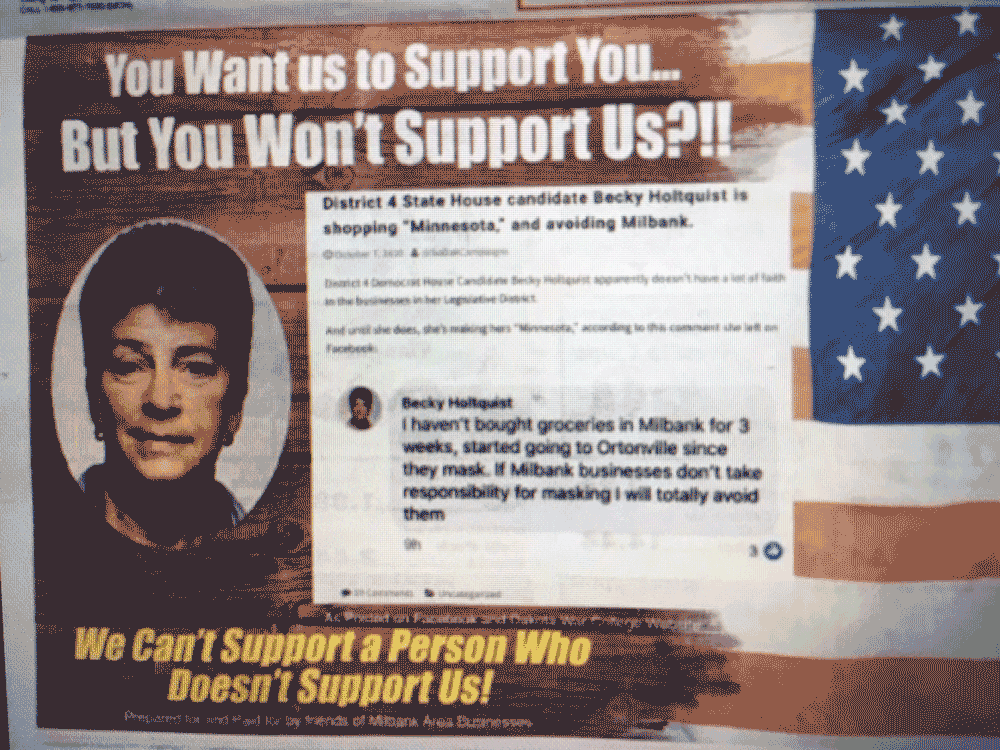You really don’t know how extreme some officeholders are until they show it.
Because in a postcard that was sent to me last night, a group of Republican officeholders are apparently so unhinged they’re breaking ranks and abandoning the GOP in the District 35 State Senate race:


Sens. Julie Frye-Mueller & Phil Jensen and State Reps. Tina Mulally and Tony Randolph, along with several other apparent “Republicans In Name Only” seem to not like the fact that State Senator Jessica Castleberry serves in the seat, and overwhelmingly won in the Republican Primary.
Because despite her 100% pro-life rating from SDRTL, 100% pro-business score from business group Elevate Rapid City, and A Rating/Endorsement from the National Rifle Association…

…apparently State Senator Jessica Castleberry isn’t extreme enough for this herd of RINO’s. So they’re rejecting the choice of the voters of the Republican Party, and leaving the fold.
As one local party official noted to me “I think it’s shameful that four (4) sitting GOP legislators and the current Vice Chair of the Pennington Co. GOP would endorse an Independent candidate. These sitting legislators routinely complain that the GOP should somehow police the ranks to deny support for those they believe to be RINOs.”
I guess we know who the phonies are that these legislators believe the party should police. Themselves.
—
Update – When Republicans are faced with a cancer from within, and a group that wants to reject the voice of the voters, it’s a good opportunity to rally support, and remember why real Republicans work together.
Make a point to go out and support Senator Castleberry, and send her a donation to help her voice be heard. Today!





 Ever wonder how Minnesota compares to South Dakota in terms of state policy driving the economy? Center of the American Experiment and economist John Phelan will be in Sioux Falls at the Hilton Garden Inn Sioux Falls (Downtown) on October 23rd for a conversation on how state policy can determine who comes out ahead.
Ever wonder how Minnesota compares to South Dakota in terms of state policy driving the economy? Center of the American Experiment and economist John Phelan will be in Sioux Falls at the Hilton Garden Inn Sioux Falls (Downtown) on October 23rd for a conversation on how state policy can determine who comes out ahead.